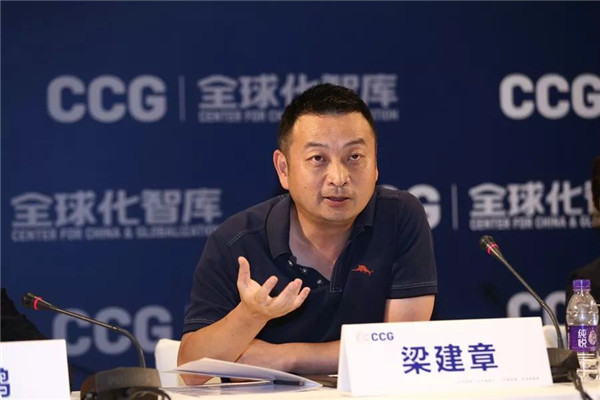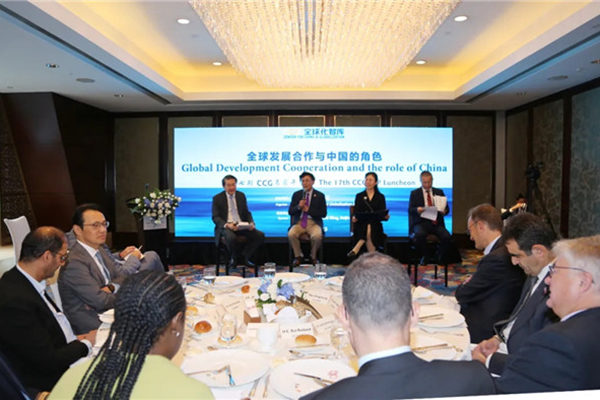Harvey Dzodin: The Trump effect? China and Japan’s military
2017年11月8日
It’s no big surprise that US President Donald J. Trump has made Japan the first foreign port of call in his current Asian tour. Just as nationalist Trump wants to “Make America great again!” US ally, nationalist Japanese Prime Minister Shinzo Abe, wants to make Japan great again too, restoring its once imperial greatness, including its military. Given Japan’s past track record that should be a cause of great concern to leaders and citizens the world over.
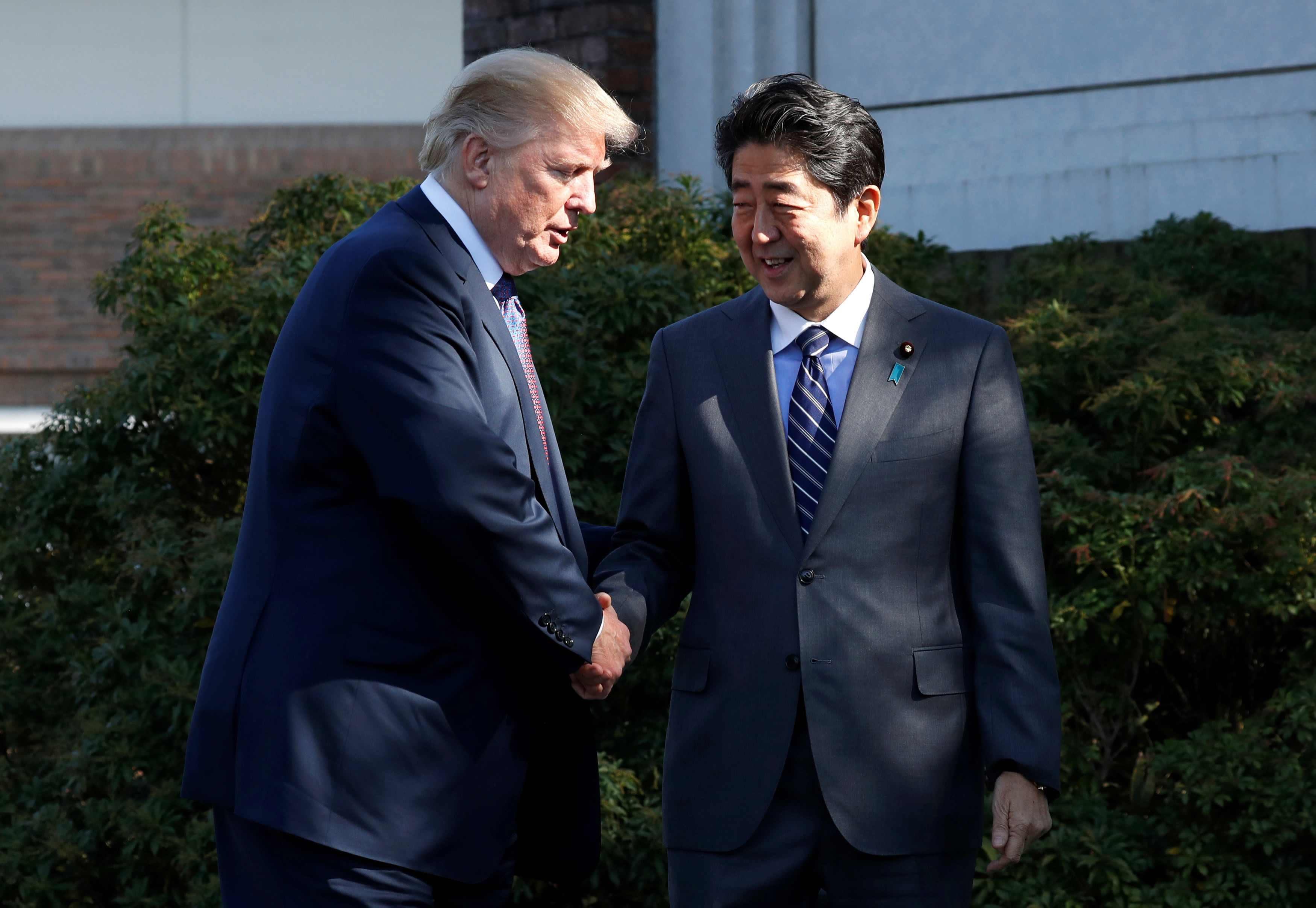
US President Donald Trump shakes hands with Japan’s Prime Minister Shinzo Abe at Kasumigaseki Country Club in Kawagoe, north of Tokyo, November 5, 2017. /Reuters Photo
Aside from jawboning China on trade issues, Trump’s strategy is, despite all China has done under its solemn obligations pursuant to UN Security Council sanction resolutions, to try to frighten China into an even more muscular stance against North Korea (DPRK) by raising the specter of an aggressive, militarized Japan. If China doesn’t do more, the “warrior nation” of Japan as Trump called it, may be forced to remilitarize to protect its own national interest. In doing so, Trump, once again is playing a dangerous and irresponsible game as enabler of revisionist and ultranationalists, in this case in Japan, namely Abe and the powerful right wing of his Liberal Democratic Party.
The DPRK issue has been on the back burner for weeks now but is clearly being brought to a boil again by Trump’s trip. The timing for Japan’s ultranationalists couldn’t be better.
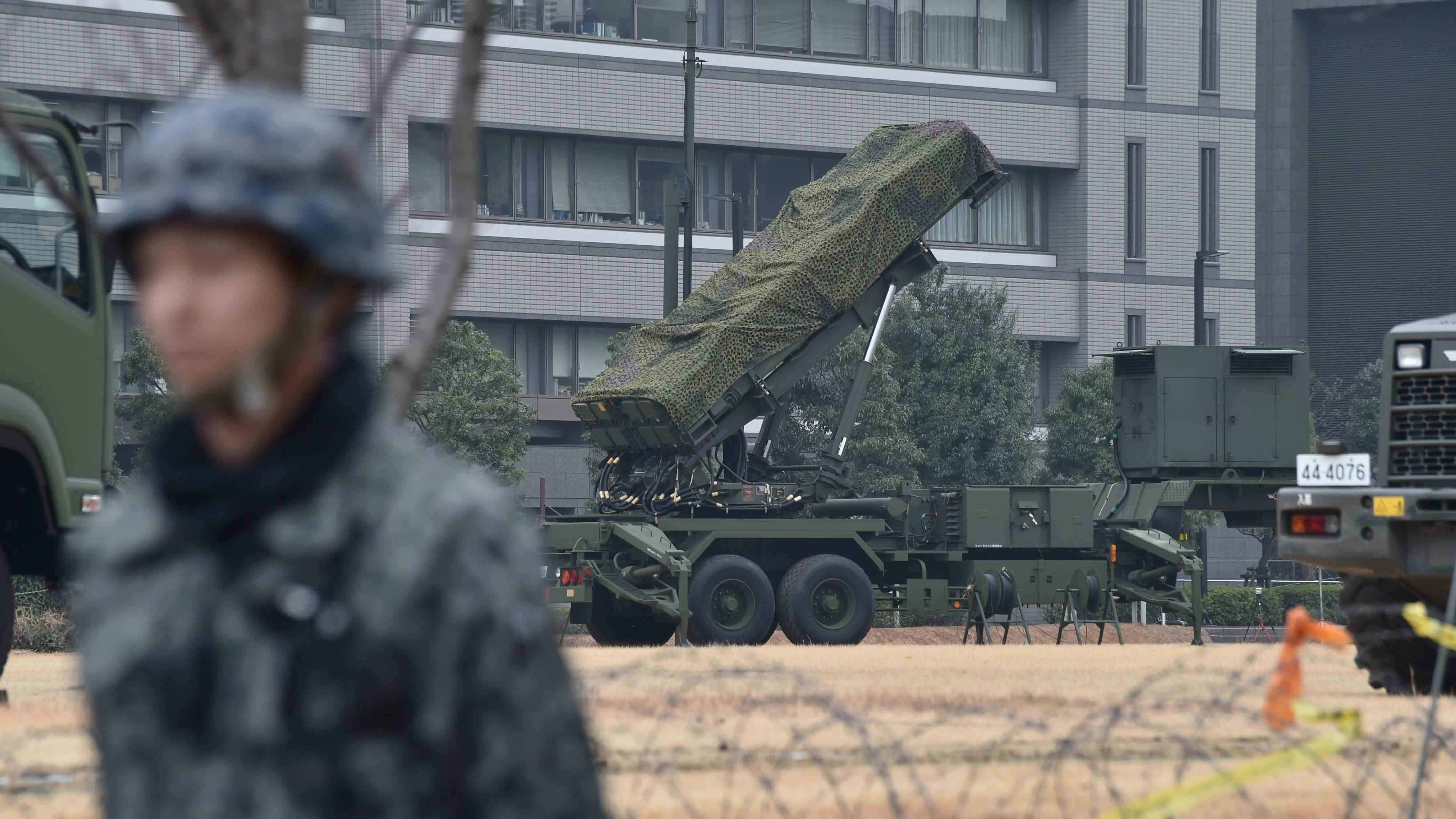
A Japan Self-Defense Forces soldier stands guard near a PAC-3 surface-to-air missile launcher unit in Tokyo, March 6, 2017. /AFP Photo
For years Abe has been pushing to gut Japan’s US-drafted pacifist constitution in order to rearm. Abe aims to reverse Article 9 that currently binds Japan to “forever renounce war as a sovereign right of the nation and the threat or use of force as means of settling international disputes.” It also stipulates that “land, sea and air forces, as well as other war potential, will never be maintained.”
Politically now Abe has his chance as just last month he won a two-thirds supermajority in the Japanese lower house of parliament. Amending the constitution requires a two-thirds majority in both houses of parliament and a simple majority of those voting in a national referendum. While the public is deeply divided on the revision, they did give Abe an historic win in the absence of a credible opposition.

Japan Self-Defense Forces soldiers walk past a Patriot Advanced Capability-3 (PAC-3) missile unit after Japan’s Chief Cabinet Secretary Yoshihide Suga reviews the unit at the Defense Ministry in Tokyo, October 8, 2017. /Reuters Photo
Where do Abe’s hawkish views come from? You could say they run in the family as his grandfather was also prime minister and earlier served under Japanese wartime Prime Minister Tojo. Abe is also an advisor to the small (40,000 members) but hugely influential Japan Conference (Nippon Keigi) which among many other things denies the Nanjing Massacre where 200,000-300,000 Chinese were slaughtered, as well as Japan’s numerous other crimes against humanity and aims to restore Japan to nothing less than its former military greatness.
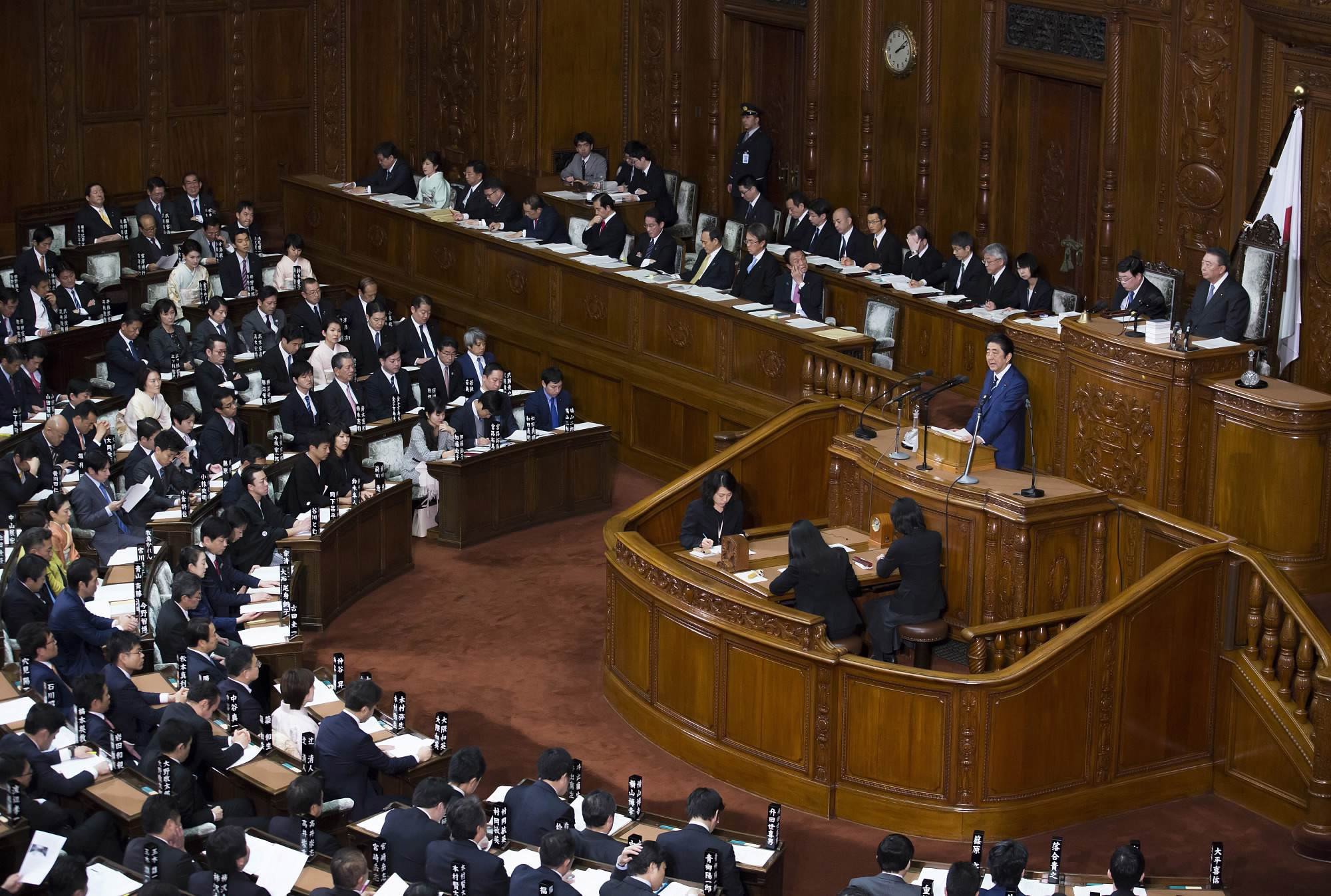
Shinzo Abe delivers his policy speech during a plenary session at the lower house of the parliament in Tokyo, January 20, 2017, vowing to revise the postwar Constitution./ VCG Photo.
Sadly, it appears to me that no matter how China responds, it somehow won’t be enough either for Abe and his fellow militarists. They will seize the moment to start their march to remilitarize. I am also fearful that it won’t be enough for Trump himself.
Abe and Trump make quite the team. Sometimes a picture is, as they say, actually worth a thousand words. The one that I find most telling is that of the white Trump-campaign style baseball caps being autographed by the two leaders bearing the words “Donald & Shinzo: Make Alliance Even Greater” by attempting to play Japan off against China, Trump and Abe’s cynical move will do nothing to defuse the DPRK problem but is bound to stir up unhelpful passions and atrocities that have yet to be owned up or to have fully healed.
Dr. Harvey Dzodin, a non-resident researcher of the Center for China and Globalization(CCG), former legal advisor in Carter administration.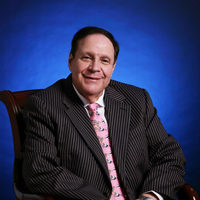
From CGTN,2017-11-6

